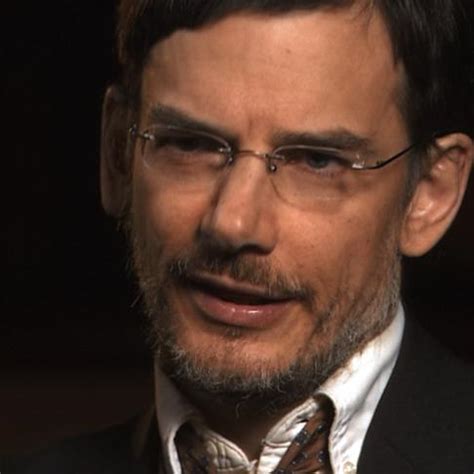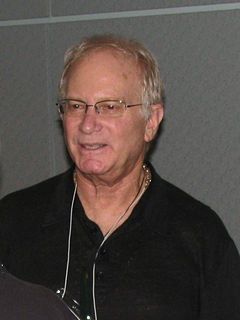A Quote by Richard P. Feynman
Scientific views end in awe and mystery, lost at the edge in uncertainty, but they appear to be so deep and so impressive that the theory that it is all arranged as a stage for God to watch man's struggle for good and evil seems inadequate.
Related Quotes
It doesn't seem to me that this fantastically marvelous universe, this tremendous range of time and space and different kinds of animals, and all the different planets, and all these atoms with all their motions, and so on, all this complicated thing can merely be a stage so that God can watch human beings struggle for good and evil - which is the view that religion has. The stage is too big for the drama.
How could you ask me to believe in God when there's absolutely no evidence that I can see? I do believe in the beauty and the awe-inspiring mystery of the science that's out there that we haven't discovered yet, that there are scientific explanations for phenomena that we call mystical because we don't know any better.
So how do theists respond to arguments like this? [The Argument from Evil] They say there is a reason for evil, but it is a mystery. Well, let me tell you this: I'm actually one hundred feet tall even though I only appear to be six feet tall. You ask me for proof of this. I have a simple answer: it's a mystery. Just accept my word for it on faith. And that's just the logic theists use in their discussions of evil.
Scientific facts are often described in textbooks as if they just sort of exist, like nickels someone picked up on the street. But science at the cutting edge, conducted by sharp minds probing deep into nature, is not about self-evident facts. It is about mystery and not knowing. It is about taking huge risks.
Both the man of science and the man of art live always at the edge of mystery, surrounded by it. Both, as a measure of their creation, have always had to do with the harmonization of what is new with what is familiar, with the balance between novelty and synthesis, with the struggle to make partial order in total chaos.... This cannot be an easy life.


































